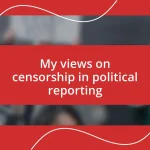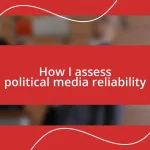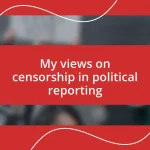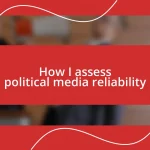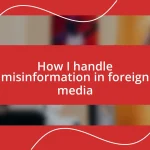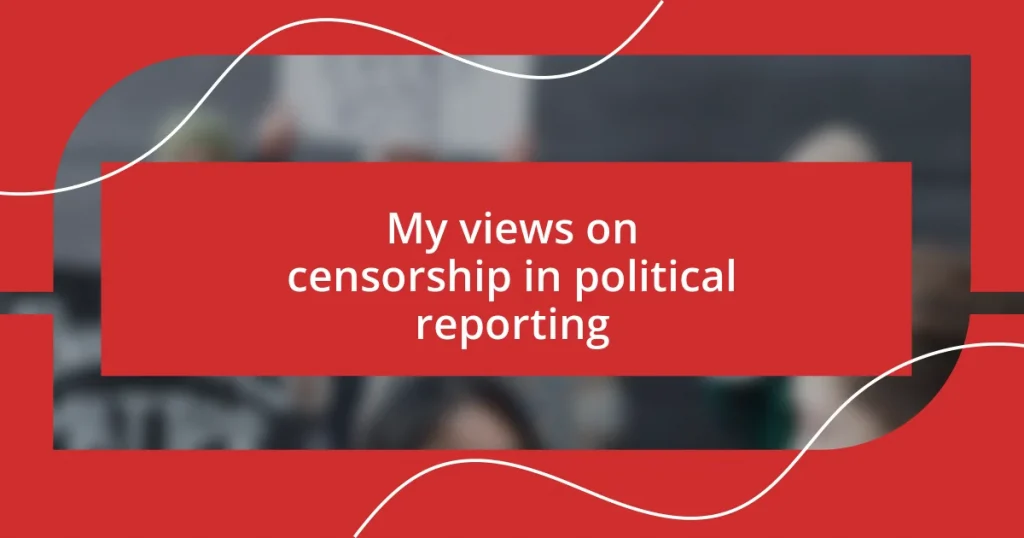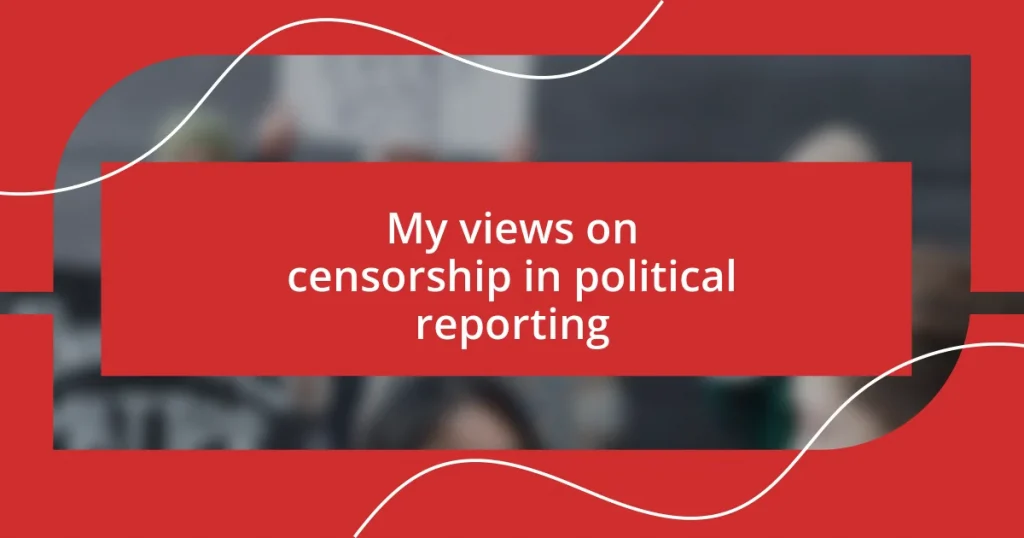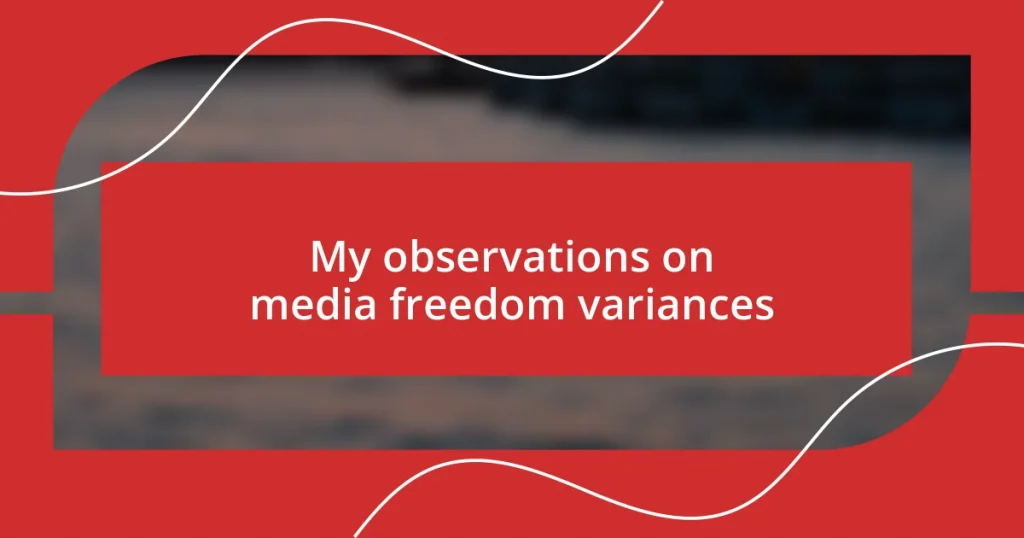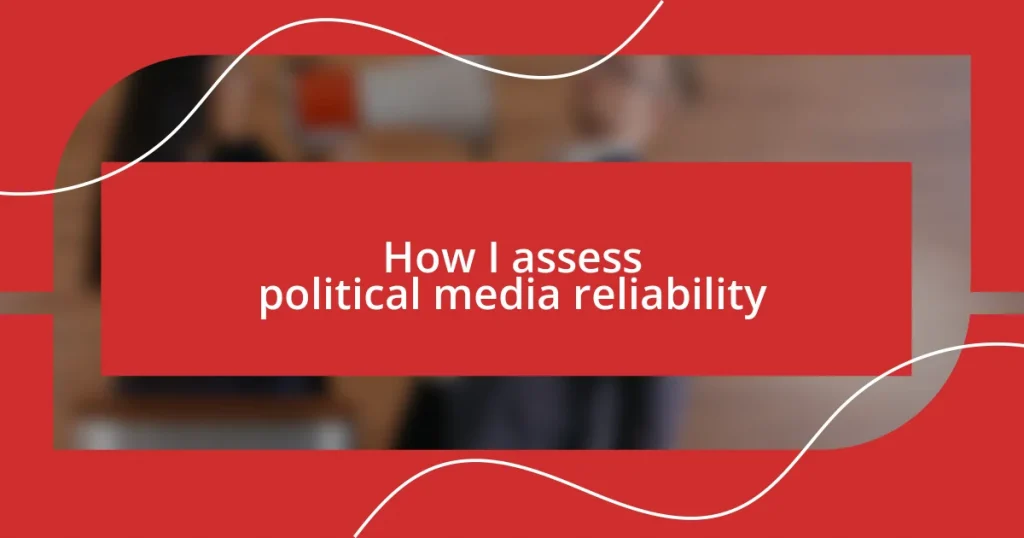Key takeaways:
- Censorship in political reporting diminishes public trust, silences crucial voices, and impacts journalists’ safety and integrity.
- Free speech is essential for democracy, fostering diverse thoughts, accountability, and social progress.
- Combating censorship requires secure communication, global solidarity among media, and public awareness campaigns to protect journalistic freedom.
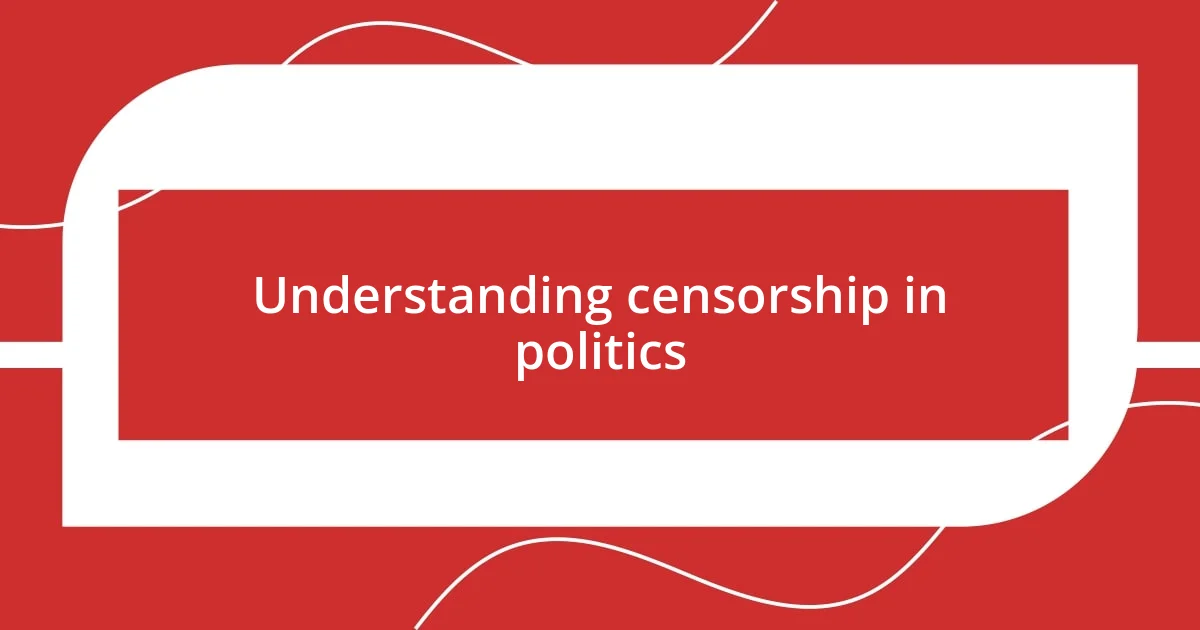
Understanding censorship in politics
Censorship in politics is a complex issue that often reflects the power dynamics at play. I remember a time when I stumbled upon an article that shed light on government misspending. The moment I shared it, I felt a wave of fear wash over me, realizing how easily voices could be silenced. It made me wonder: what truths are we missing because of censorship?
Political reporting is meant to inform the public, but censorship can distort this mission. I can’t help but feel frustrated when I see important stories suppressed. Have you ever considered how many crucial voices are muted, leaving us with a skewed understanding of current events? It’s a sobering thought, and it drives home the importance of advocating for free expression in our societies.
One of the most unsettling aspects of political censorship is that it often happens quietly and insidiously. I once read about a journalist who faced severe repercussions merely for reporting on a controversial policy. It shocks me to consider how many journalists risk their lives to report the truth. Isn’t it tragic that, in some parts of the world, sharing factual information can lead to imprisonment or worse? This reality reinforces why we must remain vigilant in supporting press freedom.
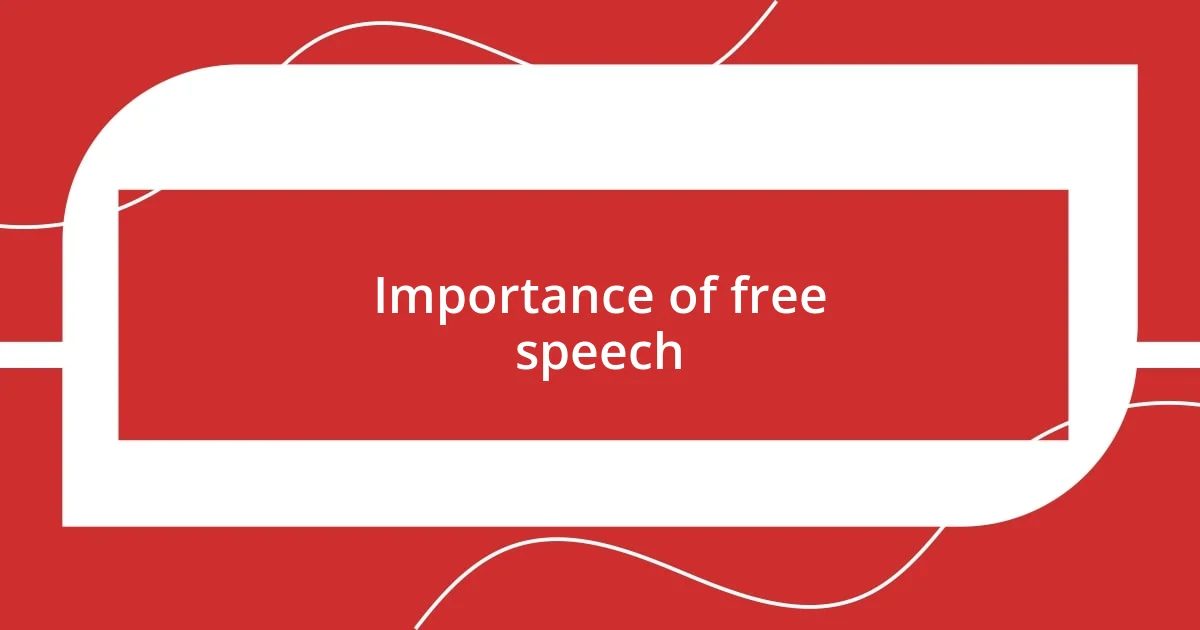
Importance of free speech
Free speech is the bedrock of a healthy democracy. Without the ability to express our thoughts freely, how can we hold those in power accountable? I vividly recall a town hall meeting where a local activist bravely voiced concerns about environmental policies. Her courage to speak up sparked a passionate debate, highlighting how critical open dialogue is in shaping public opinion. These moments remind me that every voice matters, and it’s our responsibility to protect those voices.
- Free speech fosters diversity of thought, allowing different perspectives to be heard.
- It enables citizens to engage in dialogues that lead to social progress.
- Free expression empowers individuals to challenge injustices and advocate for change.
- It is essential for informed citizenry, helping people make decisions based on a variety of viewpoints.
- Protecting free speech helps ensure that minority opinions are heard, preventing tyranny of the majority.
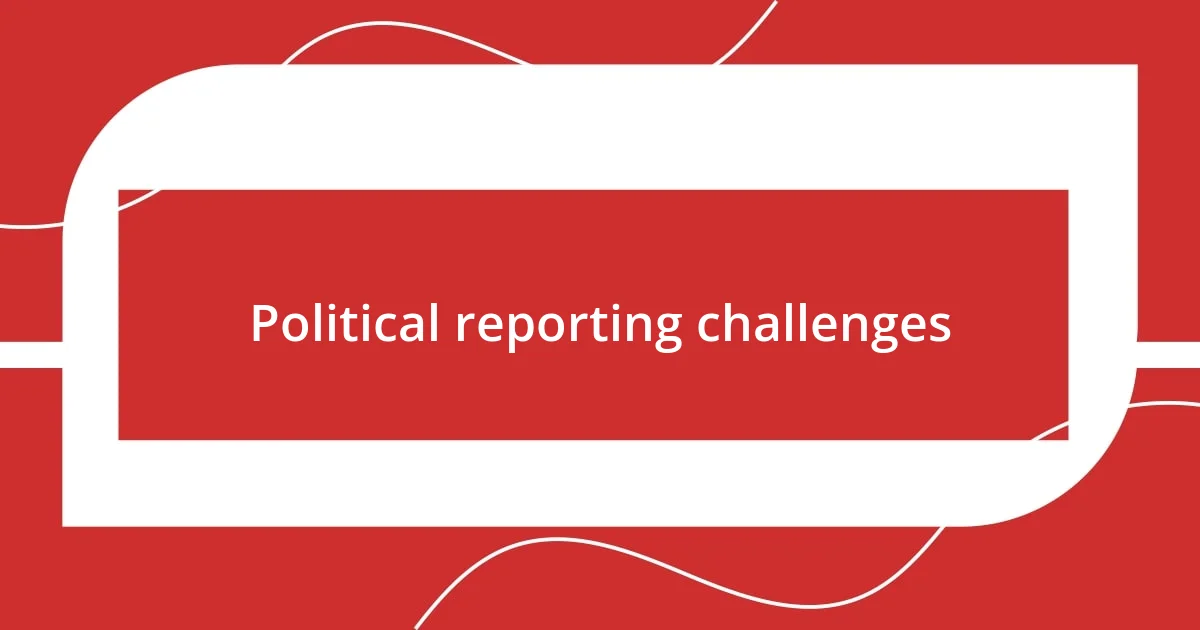
Political reporting challenges
Political reporting faces numerous challenges that can significantly impact its integrity. One major issue is the pressure from both government entities and corporate influencers. I recall a colleague who struggled to maintain journalistic integrity while working for an outlet funded by a major corporation with vested interests in political outcomes. Watching him navigate these murky waters shed light on the dangers of compromised reporting and how it can erode public trust.
Another challenge is the rise of misinformation. I remember witnessing the frenzy around a viral news story that later turned out to be false. It made me realize how quickly false information can undermine legitimate political discourse. The sheer speed at which information spreads today often leaves little room for verification, leading to confusion and a misinformed public. This is a crucial moment where responsible reporting plays a vital role, but it’s increasingly difficult to achieve amidst the noise.
Additionally, the emotional toll on journalists cannot be overlooked. I once spoke with a reporter who covered a politically volatile region and described the constant fear they faced while trying to deliver the news. Their story underscored the personal sacrifices made in pursuit of truth, often at the expense of their own well-being. This emotional weight is a reminder of the critical nature of their work and the need for adequate support systems within the field.
| Challenges | Impact |
|---|---|
| Corporate Influence | Erodes trust in journalism |
| Misinformation | Leads to public confusion |
| Journalist Safety | Impacts mental health and reporting quality |
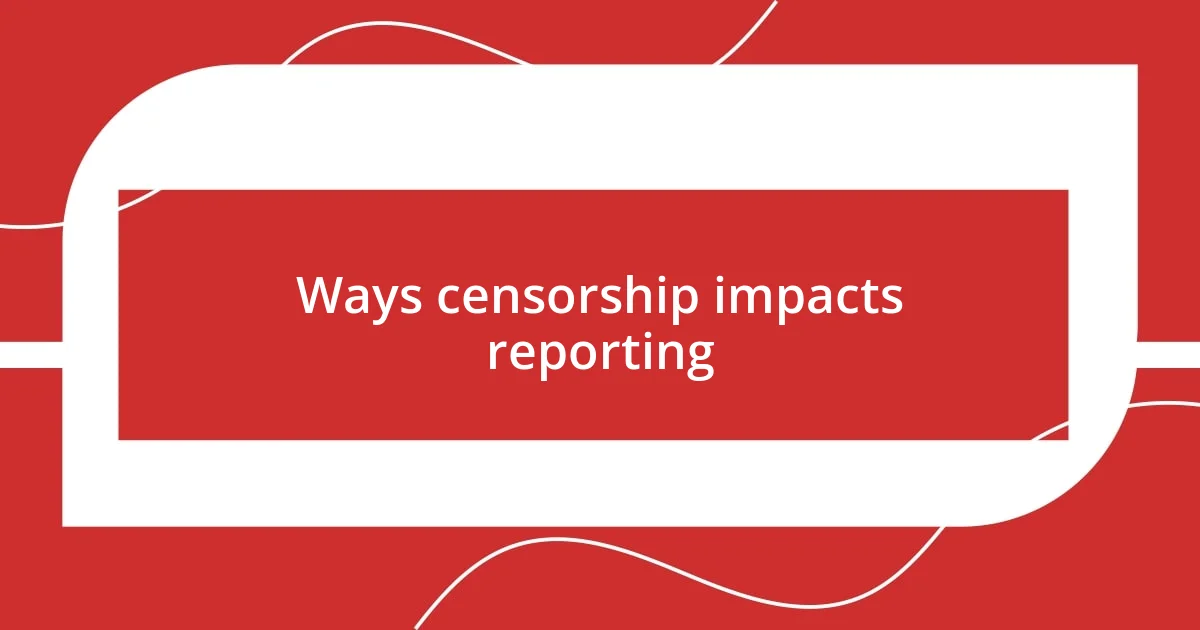
Ways censorship impacts reporting
Censorship directly narrows the scope of political reporting, limiting the narratives that journalists can pursue. I once listened to a reporter share how she had to self-censor her articles on government accountability due to fear of repercussions. How disheartening is it when the very people who should be informing us feel silenced?
Moreover, censorship creates an atmosphere where only approved viewpoints thrive, stifling the diversity of thought. I remember attending a panel discussion where a journalist from a restricted country recounted how challenging it was to find a platform for truths that contradicted the official stance. It struck me that without the ability to access all angles of a story, we risk living in an echo chamber that hinders true understanding and progress.
Ultimately, censorship also damages public trust in the media. I’ve seen audiences grow skeptical when they perceive reporting as tainted or biased by unseen pressures. When people question the authenticity of information, it undermines their faith in journalism as a cornerstone of democracy. Isn’t it crucial for us to have reliable sources to turn to, especially in an age when misinformation is rampant?
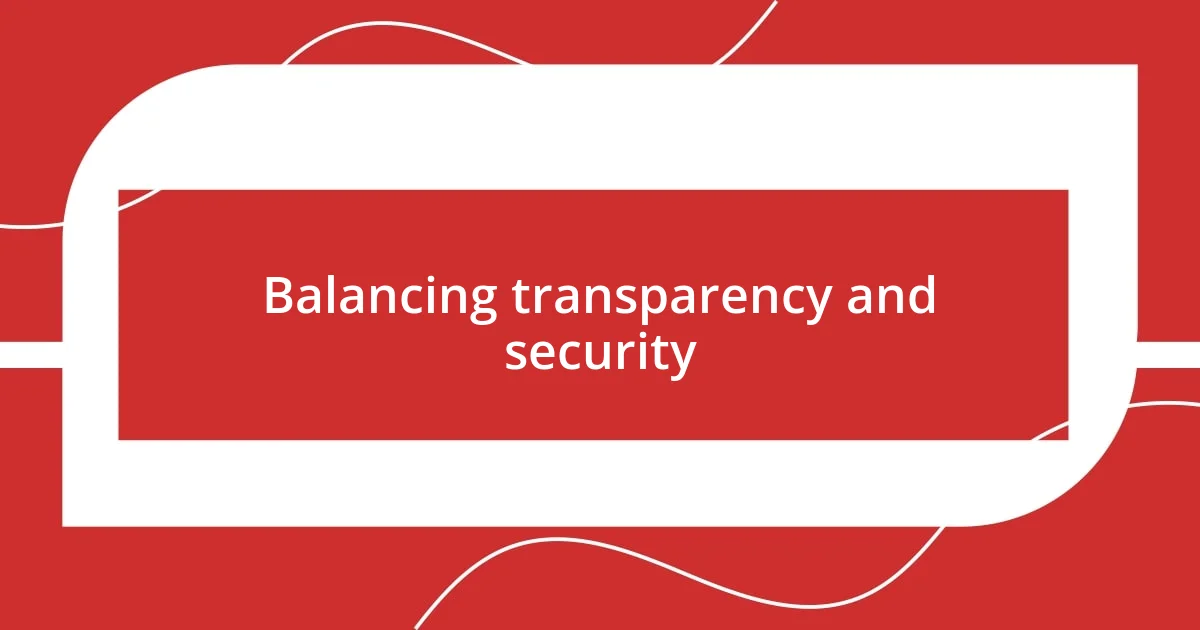
Balancing transparency and security
Maintaining a balance between transparency and security in political reporting is a tightrope walk I’ve observed firsthand. I had a friend working on a high-stakes investigative piece that threatened to expose significant corruption. The fear of backlash was palpable; yet, it was critical for the truth to surface. How can we ensure journalists feel safe enough to reveal the stories that demand to be told?
I find it fascinating how the emphasis on security can sometimes lead to overreach in censorship, ultimately blurring the lines of what should be shared. There was a time when an editor I knew was tasked with pulling an article that arguably protected the public interest out of fear for the publication’s safety. It made me ponder: what is the true cost of silence in this age of information? Balancing these elements shouldn’t compromise our democratic values.
In my experience, fostering open dialogue about sensitive topics helps clarify where transparency can coexist with security measures. I remember a community forum where local journalists addressed the delicate nature of their work, emphasizing the need for both safeguarding their sources and openness to the public. Isn’t it essential for us to create environments where both truth and safety are respected, ultimately culminating in a more informed society?
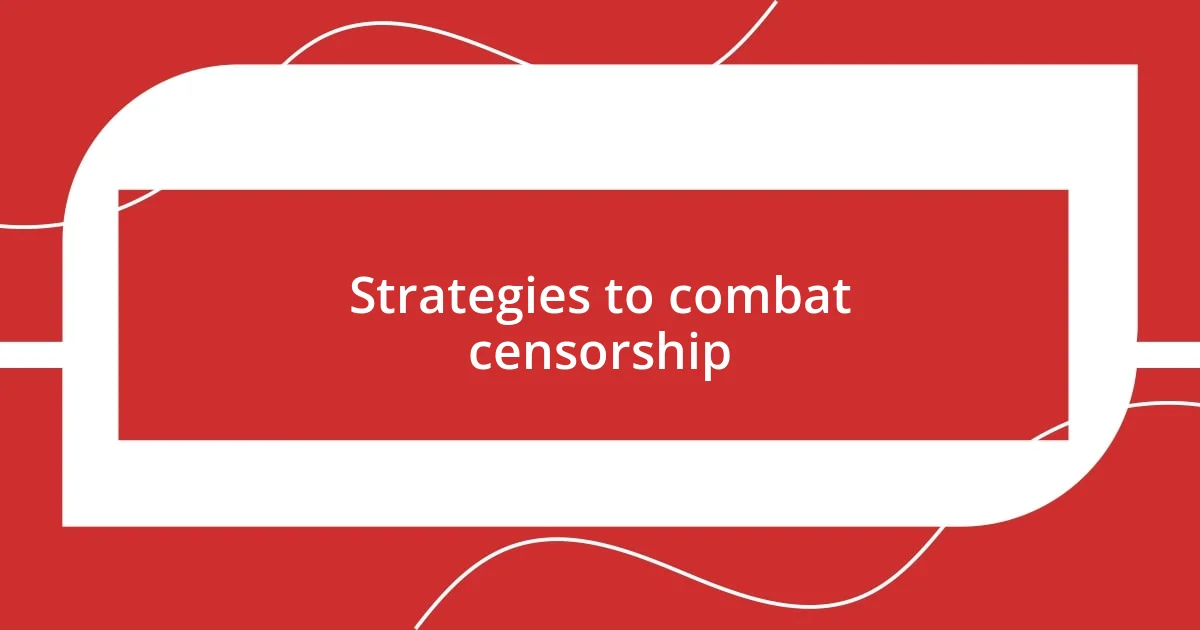
Strategies to combat censorship
One effective strategy to combat censorship in political reporting is the creation of secure communication channels for journalists. I recall a workshop I attended focused on the use of encrypted messaging apps to protect sensitive exchanges. It was eye-opening to see how technology can empower reporters to share crucial information without fear of prying eyes. By adopting these tools, journalists can collaborate more freely, pushing back against the confines of censorship.
Another compelling approach is the establishment of alliances among media organizations globally. During a recent conference, I was inspired by a panel discussion where journalists from various countries shared their experiences and support for each other’s work. The camaraderie that formed illustrated how unity can amplify voices that are often silenced. Isn’t it remarkable how reporters standing together can disrupt oppressive narratives and advocate for the freedom of the press?
Lastly, public awareness campaigns play a vital role in addressing censorship. I once participated in a grassroots initiative aimed at shield laws that protect journalistic sources. The passion throughout the campaign underscored the importance of engaging the public in dialogues about media freedom. When communities rally around the value of independent reporting, it creates a collective force that demands greater accountability from those in power. Don’t you think that an informed public is one of the strongest defenses against censorship?
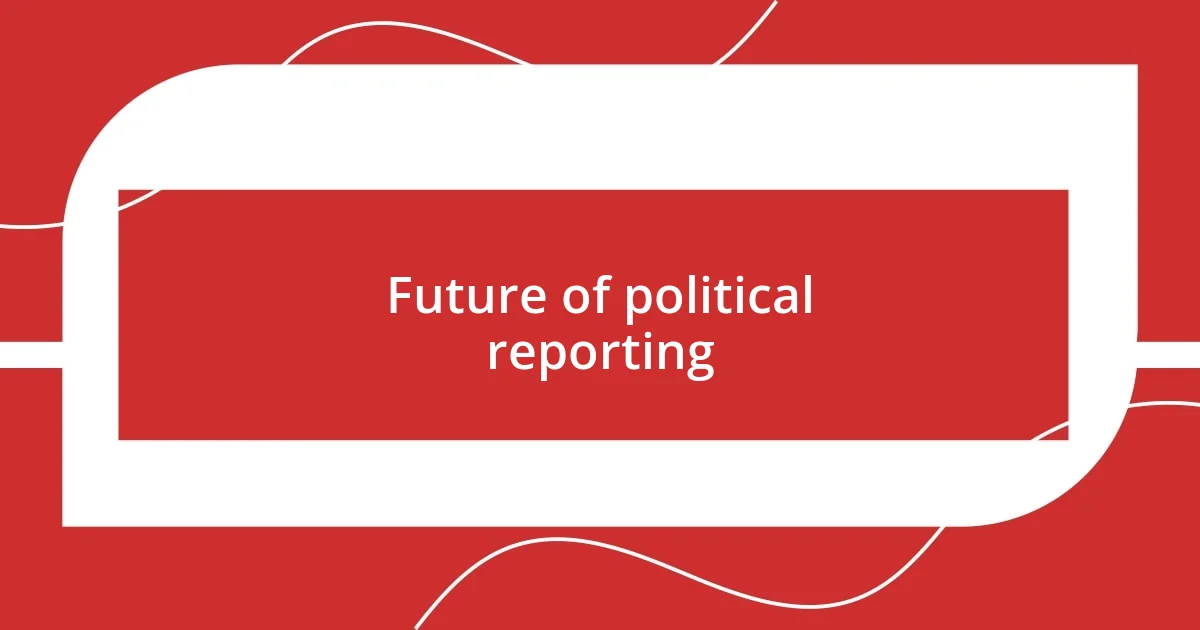
Future of political reporting
The future of political reporting will undeniably be shaped by advancements in technology and the ever-evolving landscape of public trust. Just recently, I attended a seminar where we discussed the potential of artificial intelligence in news gathering. The excitement in the room was palpable as we explored how algorithms could sift through vast amounts of information to help journalists uncover critical stories. But I couldn’t help but wonder: will this technology enhance or hinder the authenticity of the reporting?
As news outlets strive to regain credibility in a time of deep polarization, I believe that fostering community-based journalism will be crucial. I once collaborated with local reporters who shared their struggles in competing with larger media firms. Through their eyes, I saw the heart of journalism: it is about storytelling that resonates with people. Isn’t it fascinating how bringing the focus back to local issues can bridge the gap between political narratives and the everyday experiences of ordinary citizens?
Moreover, I foresee a growing demand for transparency in the operations of news organizations themselves. I recall working with a team that openly published their funding sources, aiming to build trust with their audience. It struck me how such small shifts could lead to significant changes in how reports are consumed and believed. What if the future of political reporting relies not just on what is reported, but also on the integrity of those reporting it?
